
- By Theme
-
Destinations
-
Indian Destinations
-
International Destinations
-
- Best Places to Visit
- Packages
- Search Agents
Apart from being famous for its Film City, the Mumbai Nagri is also known for its historical significance and the various monuments. From the serene coastal breeze one can feel in the morning to the pulsating night scene to get you grooving; the City of Dreams bears sheer richness within, in terms of everything. Home to Indias prolific Bollywood Mumbai has some of the breathtaking architectural grandeurs in its heart. Not just that, some of the popular tourist attractions of India are situated in and around the city of Mumbai, some of them are listed below. Here, take a look.
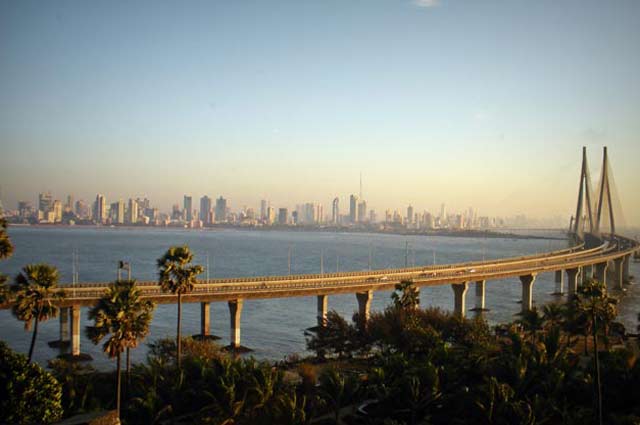
The Bandra Worli Sea Link is a cable-stayed bridge with compressed concrete-steel viaducts on each ends that link Bandra in the Western Suburbs of Mumbai with Worli in South Mumbai. The Bandra-Worli Sea Link is officially known as the Rajiv Gandhi Sea Link. This 5600 meter long link costed around 16 Billion to the Maharashtra government. Before the construction of the sea link it used to take 60-90 minutes to reach Worli from Bandra, the sea-link reduced the time to just 20-30 minutes.
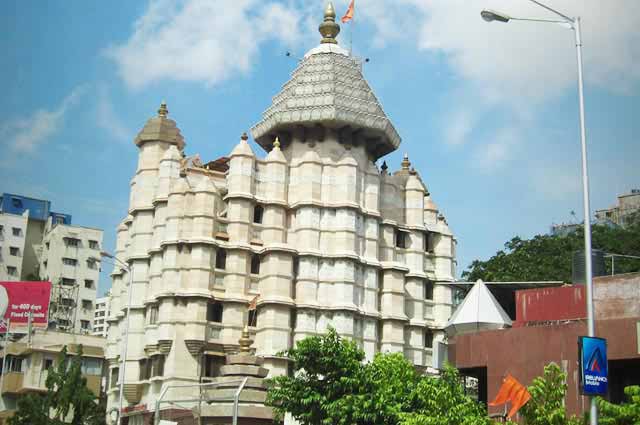
The Shree Siddhivinayak Ganapati Mandir is a Hindu temple dedicated to Lord Shri Ganesh. It is located in Prabhadevi, Mumbai. There are huge masses of Hindu devotees outside the temple for the darshan. The Hindus believe Siddhivinayak temple to be extremely sacred and follow the pilgrimage whole-heartedly. It is said, if you truthfully ask the gods of this temple to grant a wish, it comes true.
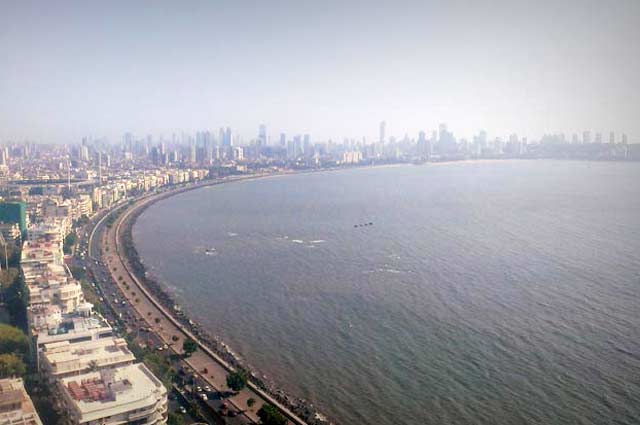
Marine Drive is a 'C'-shaped, six-lane concrete road along the coast, which is a natural bay. It is a 3.5km long Boulevard in South Mumbai. Situated at the foot of Malabar Hill, the road links Nariman Point to Babulnath. The world knows it as Marine Drive; whereas the locals call it Sonapur.
You will find a huge number of tourists walking the pathway and enjoying the spectacular view of the sun setting at dusk. The Palm trees dotted along the pave way enhance the enchanting view of the sunset. Marine Drive is also known as 'Queen's necklace', because of the view it offers at night, from any elevated point; the street lights make the road look like a string of pearls and create an illusion of a necklace.

The original name of the Iskcon temple located in Juhu, Mumbai, is Radha Ras Bihari Temple. Stretched over four acres of land, this temple in Mumbai is among the most beautiful temples in the city. If you are visiting Mumbai, you just do not want to miss this temple Built with over a hundred-feet high marble domes.the temple is dedicated to Radha- Krishna and the 8 companions of Radha. Established in 1978, houses the main temple, an auditorium, a seven-storeyed guest house, a restaurant and a bakery.
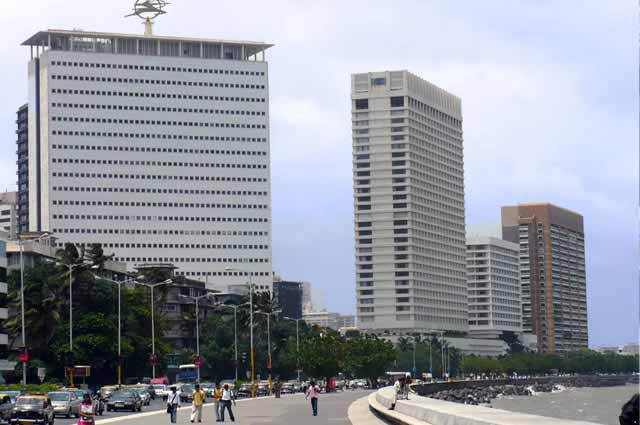
Nariman point is a business district in Mumbai. It is like the Connaught Place of Delhi. A place where one can find most of the airlines offices, consulates and embassies of various countries. This place is home to the corporate offices of the important industrialists of India. The tall buildings at Nariman point give it a Manhattan look. These clusters of skyscrapers are home to some of the most powerful business houses in the country. The Maharashtra Legislative Assembly and Vidhan Sabha are also located at Nariman point.
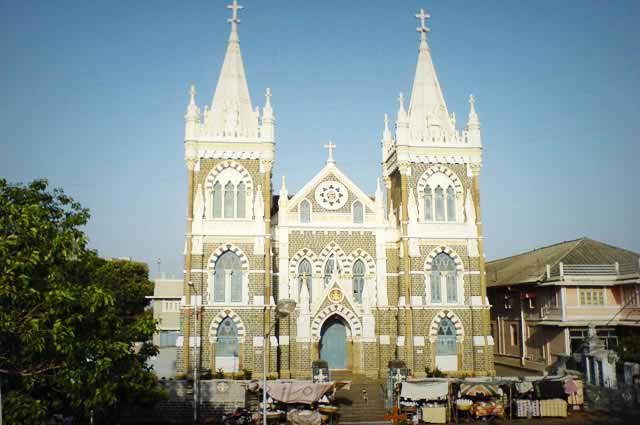
The commonly known Mount Mary Church or the Basilica of Our Lady of the Mount is a Roman Catholic Basilica located in Bandra, Mumbai. The first Sunday after 8 September, the birthday of Virgin Mary, is chosen to celebrate the feast of Blessed Virgin Mary. The feast is followed by the Bandra Fair, a week-long celebration visited by thousands of people.
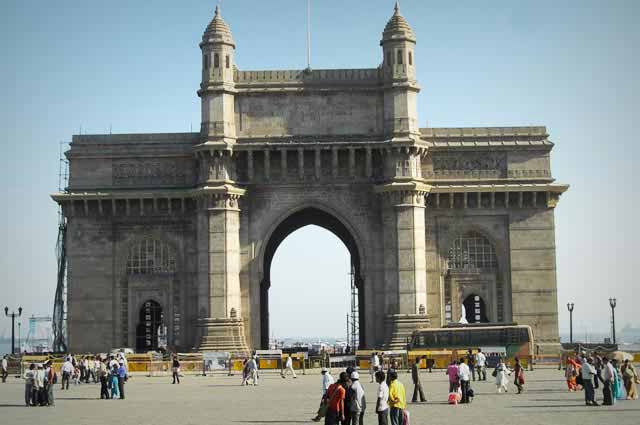
Gateway of India located in Mumbai is the most famous landmark in Mumbai. It was built a century ago, by the Britishers in yellow basalt to commemorate the royal visit of George V and Queen Mary. The Gateway of India to Mumbai is what the Statue of Liberty is to New York. The construction began in 1911 the construction was completed in 1924. Preferred time to visit: - 6am to 9pm.
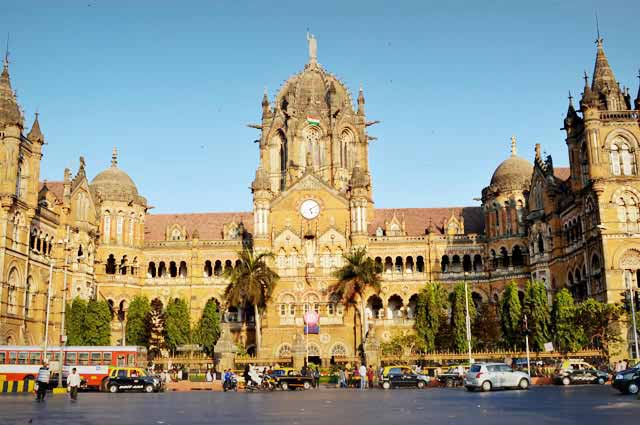
Chhatrapati Shivaji Terminus is also known as The Victoria Terminus. Its architecture reflects the Italian Gothic style designed by F.W. Stevens. The historic significance of this terminus can be traced back to the first rail service in India, from Mumbai to Thane way back in 1853.
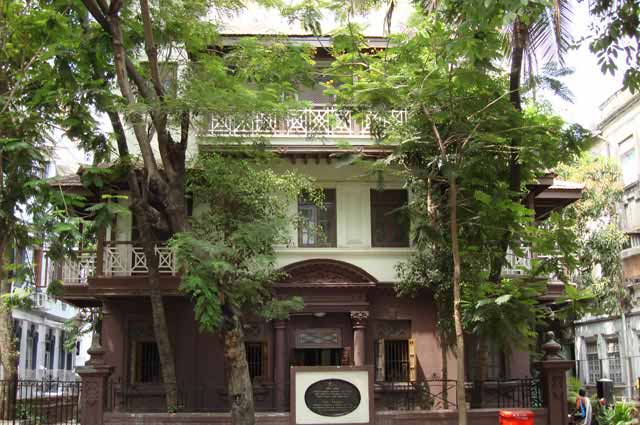
Mani Bhavan owns its historic significance to the time of Mahatama Gandhi. This is the place where Mahatma Gandhi stayed during his frequent visits to Mumbai. It was the home of Revashankar Jhaveri, a diamond merchant and a supporter of Indian National Congress. It is now converted into a museum and has a library of Gandhian literature. Gandhi ji's room remains untouched but apart from that, the entire museum is open for photography.
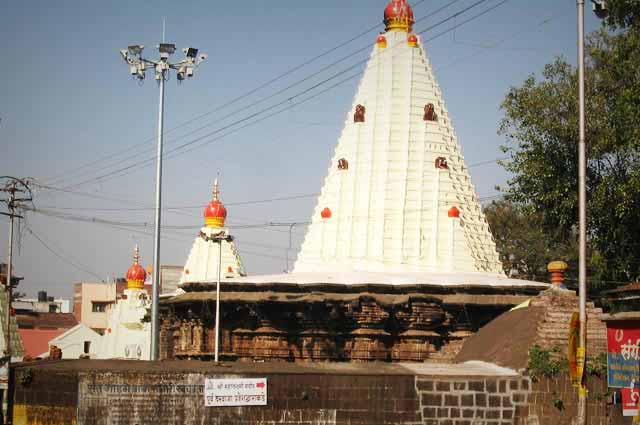
The temple of Mahalaxmi was built by Dhakji Dadaji. It is one of the most famous temples of Mumbai situated on Bhulabhai Desai Road in Mahalaxmi area.
The legends have it, Centuries ago, the British wanted to connect Malabar Hill with Worli. But the marine disturbances made it impossible. As it is believed, one night the chief engineer dreamt of Goddess Mahalaxmi who asked him to find three idols located at the bottom of the ocean and place them inside a temple dedicated to her. After he followed the instructions, the Breach Candy that linked Malabar Hill and Worli was built. Today, the Mahalaxmi temple comprises of the 3 idols of Goddess Mahalaxmi.
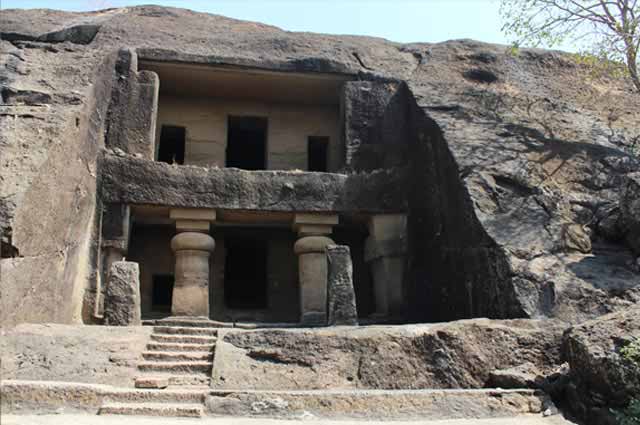
Kanheri caves house a group of rocks - cut ancient caves located in Borivali in Mumbai. These 109 caves can be traced back to the 1st century BC. To reach the caves one has to cross the green forests of the Sanjay Gandhi National Park. The caves are located deep inside about 6 km from the entrance of national Park. You may travel in a car or go hiking to the caves.
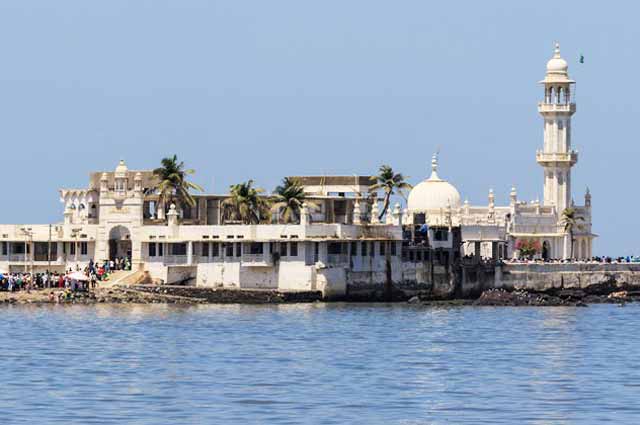
This mosque was built to honour the Muslim saint Haji Ali. The mosque is built in the middle of the sea with a narrow path leading to it, giving it an unearthly look. As per the Muslim traditions, there are separate praying rooms for ladies and gents to offer their prayers. It is situated 500 yards into the sea and can be reached only in low tide.
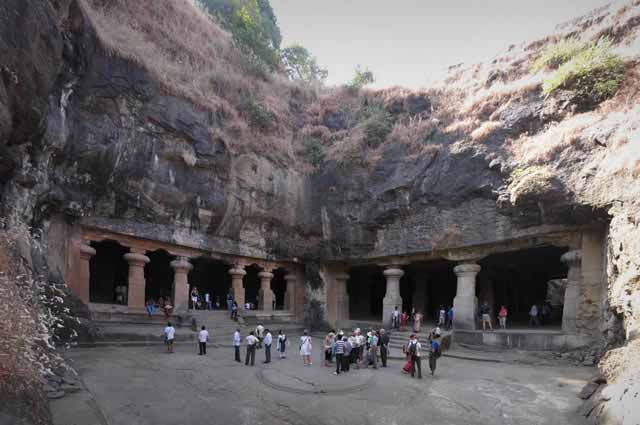
Elephanta Caves are mostly invaded by the tourists for the visit. It is an ideal tourist spot to visit with friends and family. There are 10 tourist attractions within the caves which can be visited at any time of the day. You may finish the sighting seeing in a day but to view all the other attractions you need to stay there for 2-3 days. Ideal time visit the caves is between October - November.
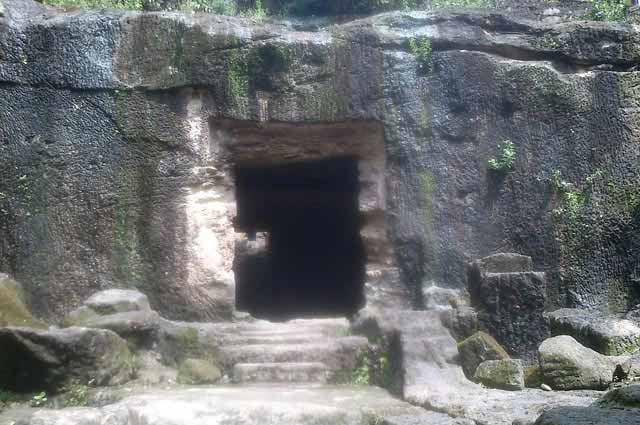
The Josheshwari caves were previously known as the Amboli Caves named after the Amboli village. The Jogeshwari temple caves are said to be beautiful and adorned in the past now they have become a bit perished but still attract a huge Lott of tourists. Amidst the rocks, there is a small entrance that leads to the caves. Just above the caves there exists a playground which is being used for spare time activities. The caves have a Hanuman Ji temple and a Ganesh Ji temple. The temple also has impressions of foot prints of Goddess Yogeshwari.
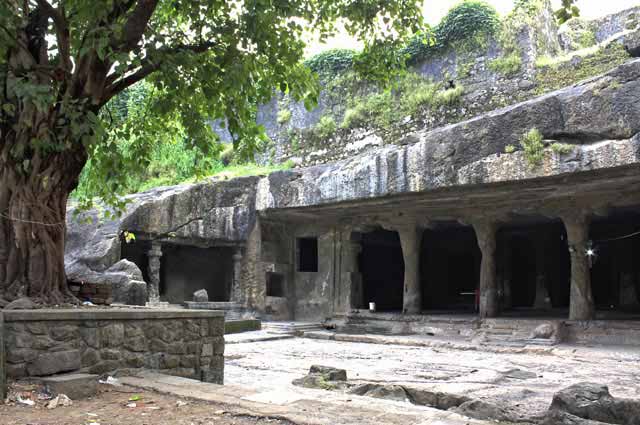
The Mandapeshwar Caves were originally built on the banks of the River Dahisar, but is now separated from the River because of the change in course of River over the years. These caves are cut out of a hill in the quiet suburb of Borivali, hidden in a corner, behind an open plot of ground just behind the Our Lady of Immaculate Conception Church. It was built around the same time as the Jogeshwari caves. These troublesome caves have undergone several iterations of being converted back and forth between a Hindu temple and a Chapel.
Bombay, now known as Mumbai, has a lot to offer to visitors. Glimpses of the places you can visit in Mumbai are listed above. These are the places that would add to your traveling experience. So, if you are planning a getaway, or live in or near Mumbai, this list will be of great use to you.